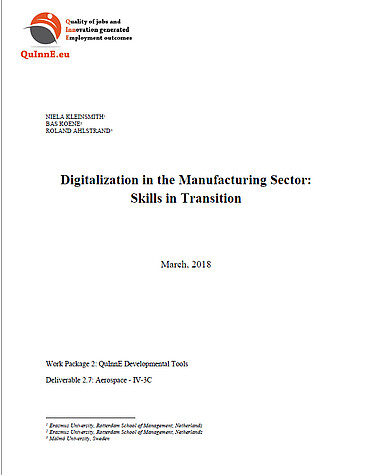Abstract
With the introduction of new machining technologies in his workplace, 50-year-old machine operator Paul Sandberg is confronted with the realisation that the skills and experience that he's gained on the job over the course of his career are now mostly worthless. He has learned new skills in operating new CNC machines, but he has lost some job autonomy and responsibility. Additionally, his hierarchical superior, on whom he is now dependent for the progress of his work, is more than 20 years his junior, and his new operator colleagues have significantly less skills training than he has. Like the machine he used to manually operate, Paul now feels somewhat obsolete and is having a hard time relating to his new colleagues and working environment. How can companies best manage technological transitions in the face of aging employees whose skills and experience are becoming obsolete?
Citation Note
Based on field research; 4 pages.
Follow the 'handle' link to access the Case Study on RePub.
For EUR staff members: the Teaching Note is available on request, you can contact us at rsm.nl/cdc/contact/
For external users: follow the link to purchase the Case Study and the Teaching Note.
Objective
1. Understand the implications of the digital revolution in the manufacturing sector on knowledge and skills that are being gained and lost. 2. Understand the impact of new technologies on both younger and older employees, in terms of their current skills, development needs and future career path. 3. Analyse the organisational implications of changes in technology, in terms of employees' social relations, job content, skill development and job satisfaction. 4. Generate ideas on how to facilitate inter-generational social relations in high-tech industries in transition. 5. Imagine potential ways of implementing new technologies in manufacturing firms that result in smooth organisational transitions.
